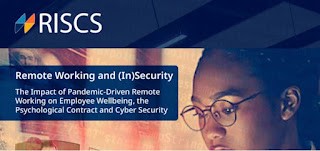GFCE Annual Conference - Washington: Phil Sheriff
The Annual Global Forum on Cyber Expertise meeting was held at the Organization of American States headquarters building, impressively located next to the Washington Monument. The event welcomed global participants from senior policy makers through to technical experts. In between the keynote addresses and workshops, researchers from Royal Holloway’s CDT in Cyber Security and Oxford University’s Global Cyber Security Capacity Centre were invited to discuss impact evaluation in cybersecurity capacity building.
Cybersecurity capacity building aims to help to improve cyber security maturity, and the UK and likeminded nations regard it as paramount. At a time of heightened geopolitical tension, the focus remains on undermining the ability of adversaries to gain advantage through cyber means, as well as impeding the ability of cyber criminals to pursue nefarious goals. The aim is to reduce the cost of such attacks on the UK and partners.
Impact evaluation in cybersecurity capacity building is a topic of considerable relevance to the Global Forum on Cyber Expertise (GFCE). The latter manages the Cybil Portal, which is described as “the only online repository for international cyber capacity building projects”. The Forum coordinates a clearing house mechanism, which aims to improve efficiency of cybersecurity capacity building by identifying blind spots and duplication. Managing a comprehensive research agenda, impact is championed in the GFCE’s working groups.

Understanding and measuring impact are key topics in cybersecurity capacity building not just for governments and multilateral organisations, but for a range of different groups and organisations involved in capacity building programs. In addition to the presentation of research, Royal Holloway and Oxford University researchers were invited to participate in a formal presentation and discussion on the implications of impact evaluation on and for Civil Society Organizations (CSOs). Resourcing, data gathering and generating tangible impact are, for CSOs, exacerbated in comparison to better resourced governments. There were interview opportunities with relevant stakeholders throughout the event and this being a Washington-based event, it was perfectly possible to listen to officials from the US State Department and World Bank articulate their policy-relevant challenges.
The timing of the conference was politically interesting, as the US waits nervously for presidential elections. The psychodrama associated with Harris and Trump was potent throughout. The formal reception was located close to the White House, and it is interesting to think about how this field, as with so many others, might be influenced by that November result. Whatever happens next month, this conference proved highly instructive and showcased for me the value of both the formal workshops and lectures alongside the more informal networking opportunities which have proven so vital for this PhD project on evaluating cyber-security capacity building.



Your spiritual journey will be stress-free and unforgettable if you book Kumbh Mela camping with Era camping, which guarantees comfort, security, and convenience!Kumbh Mela Camps booking
ReplyDeleteGreat update on global cyber initiatives! For students inspired by such international events, the B.Sc. (Hons.) in Cyber Security is an excellent programme to build skills in ethical hacking, digital forensics, and cyber law—ideal for a career in today’s digital world.
ReplyDelete